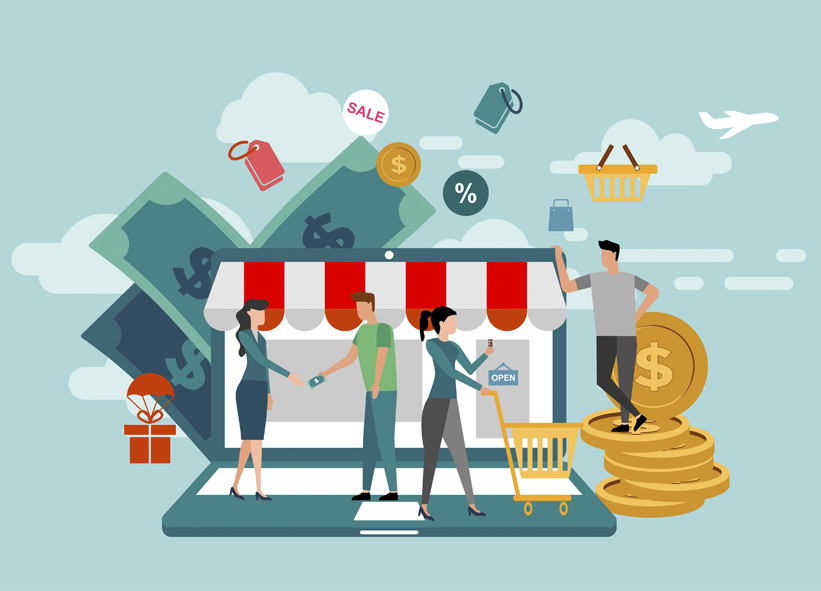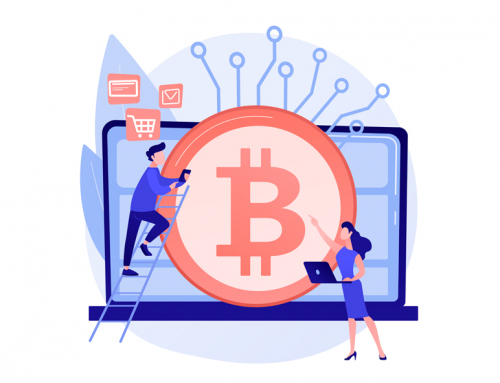The Covid-19 has long since changed and will change consumer habits and consumers. Many companies whose origin is totally offline, which have based their business model on shopping, putting the premises in the best areas of each city are preparing drastic changes. Perhaps one of the most striking examples is INDITEX, which is planning to close 100-1200 stores around the world, many of them profitable, but which is preparing for the future.
The commitment to the “online” sector
Betting on online business and that in the medium term it will represent between 25-50% of the income of a brand like Inditex, is a bet that goes through something more important than an online store. This example must serve as a reference for all businesses that cling to an offline system, out of pure conviction and tradition. If in the medium term you don’t bet on online business, it is because you have a very clear strategy of going counter-market.
But beware, online business is not about having an online store, and some marketing. That’s the big mistake, especially for small businesses. An online store, something that with today’s technology can even be free, at least for a while, is not enough. You have to take into account that it is a business in itself, with all that it entails. For example, you have to take into account the synergies with other activities or sales systems, as other companies combine online sales with in-store collection, exclusive online availability, more competitive prices, exclusive offers,…
Amazon is committed to the brand and to offering free shipping, free digital content, it will start with insurance, loans, car sales,… everything that has or brings profitability.
Logistics
If you haven’t thought about the logistics, something’s wrong. Although today’s parcel delivery companies have many situations solved, it is possible that some or almost all of the profitability is lost there. To avoid this, you need a very, very efficient delivery system. It is possible to consider an own or mixed system of shipment. Therefore, online sales are logistics.
Commercial
If I sell online you can also sell with commercials. These commercials sell to both individuals and professionals. This system must have multipricing, filtering categories according to the commercial, filtering clients according to the commercial, etc.
Physical stores
The physical stores are a complement to the online stores. They generate brand, they are a reference for collection and return. Therefore if you have physical stores are not an element contrary to a sales strategy. The market will not be online or offline in a restrictive way. Certainly there are companies that promote this strategy: Amazon is clearly online, Primark does not have online sales. But it is likely that they will evolve, albeit very briefly. Amazon has begun to have physical stores, more for a marketing strategy than to increase sales in that channel.
Integrated Stock Management
As a consequence, any company achieves an improvement in its capacity to respond to customer demands, by making all its products available within a few hours via the Internet, regardless of their physical location at the time of purchase. At the same time, the brands offer a better customer service, always sending the orders from the most efficient point and shortening the shipping times.
Omnicanality. The fashionable word.
Any physical store of any sector, of any business has realized that the online store that it made some time ago, because the fashion arose, but on which it did not bet much, and even saw as a waste of time and money, curiously has become the most important showcase. Ecommerce is not an adventure or a fashion. Those companies that do not bet on the duality online-offline will simply disappear.
Paying online
Bizum, whatsapp, paypal, stripe, … payment systems are well established in all B2B relationships. Physical money has many security and cleanliness problems. It goes from hand to hand, you have to touch it, …. that is why it is another technology that has come a long way in a few months, bringing forward its assimilation by users.
More security: payment directive
The year 2020 is proving to be decisive in many ways, but especially in terms of security. With this in mind, Adyen launched the first solution in the Spanish market to comply with the new payment directive (or PSD2) in 2019, months before it comes into force. A moratorium was finally agreed in September, but its activation is only a matter of time and companies will have to be prepared.
PSD2 will involve many changes and requirements for retailers and, as online selling will be key, compliance will be an additional headache for those who are not yet ready. Among other requirements, this legislation requires two-point authentication or the use of biometrics to verify the security of buyers. A challenge for online sales.






